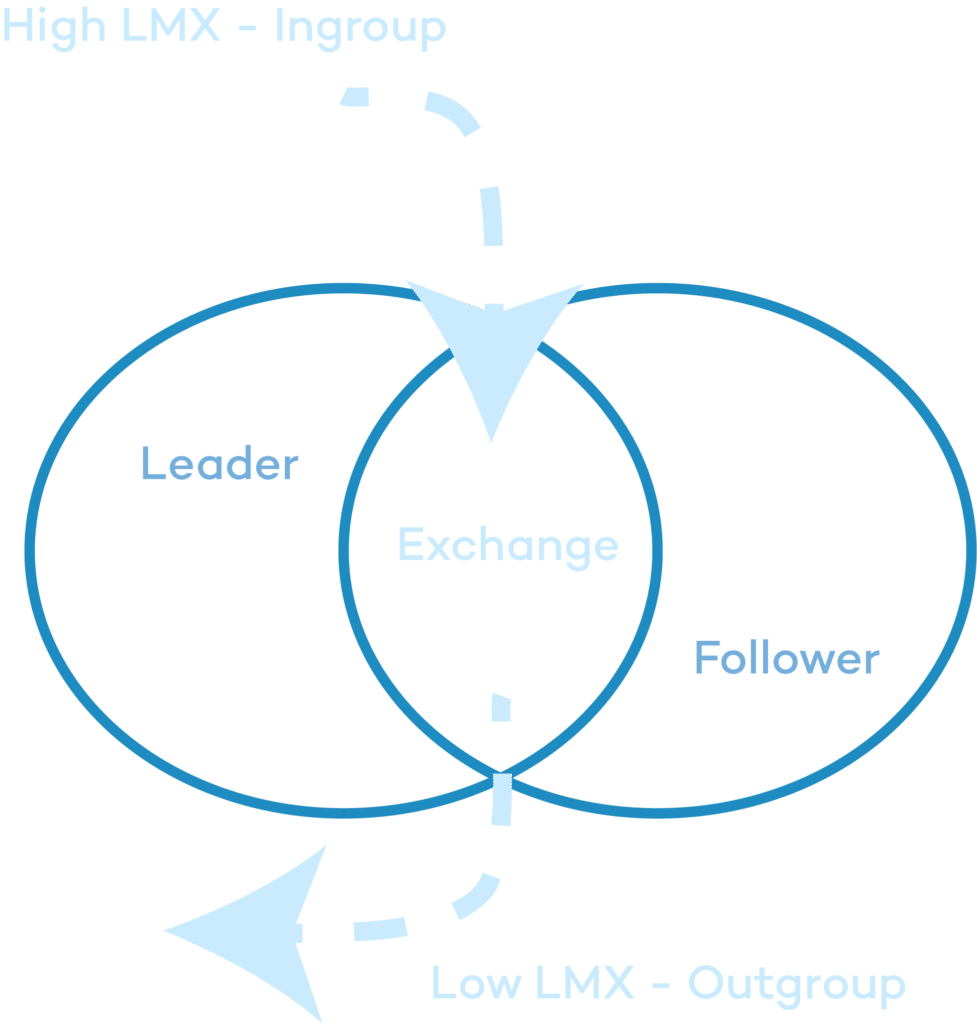Cultivating Quality Relationships through Leader-Member Exchange

Introduction
Leader Member Exchange (LMX) is a theory which focuses on the quality of the relationship between superior (leader) and subordinate (employee). The theory supports an ingroup, midgroup and outgroup (Horan et al., 2013). Employees within the ingroup may experience higher levels of LMX which is linked to increased confidence and positive relations; whilst outgroup interactions are characterised by low trust and minimal support (Horan et al., 2013).
Outgroups V Ingroups
In circumstances where employees do not develop a positive reciprocal relationship with their leader, they are said to belong to the outgroup. The outgroup refers to subordinates who are subjected to negative reinforcements from the leader and do not benefit from a rich relationship with their leader (Farr-Wharton et al., 2018). Due to the leaders’ time constraints, these relationships quickly form and range in quality from lower to higher exchanges (Deluga, 1998).
Leaders typically use their formal authority within organisations to communicate and instill shared values among their employees (Deluga.,1998). In exchange, employees work hard to fulfill the criteria of their clearly specified roles. There are several interpersonal factors present in these dealings, including mutual trust, loyalty, and close communication (Deluga.,1998).

Influence of High LMX on Employee Motivation
According to Farr-Wharton, Brunetto, and Shacklock (2012), the ideal situation with LMX is for employees to have high quality relationships, which will then yield the greatest benefits for both parties. LMX requires a perception of trustworthiness from the employee based on their leader in order for a high quality relationship to be facilitated (Chen et al.,2012). Emphasising the significance of superior LMX is crucial for leaders, as it has been associated with enhanced levels of competence and autonomy, consequently fostering heightened intrinsic motivation (Xie et al., 2020).
In relation to the LMX model, leaders should make use of a framework of social exchange in which connections are built with employees and knowledge is shared (Kim et al., 2017). Trust & social exchanges which occur as a result of high LMX can provide the leader with an insight into the employees thought processes with regard to their level of knowledge (Whisnant and Khasawneh, 2014). This can also help leaders navigate the areas in which employees require further support and guidance. From a leadership standpoint this is a valuable perspective as it identifies areas where employees require support which in turn fosters increased motivation and a sense of value within the organisation.
More on Trust & Autonomy
Why You Should Delegate – And How To Do It Effectively
Leadership in Focus: Foundations and the Path Forward
Sources
https://psycnet.apa.org/record/1998-02680-005
https://www.jstor.org/stable/26536455
https://www.ncbi.nlm.nih.gov/pmc/articles/PMC7655925/
https://academicjournals.org/journal/AJBM/article-full-text-pdf/042449669944
https://onlinelibrary.wiley.com/doi/10.1111/j.1748-8583.2012.00198.x